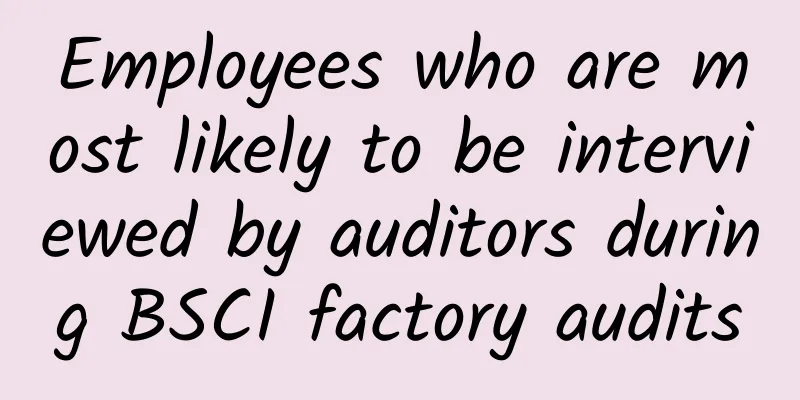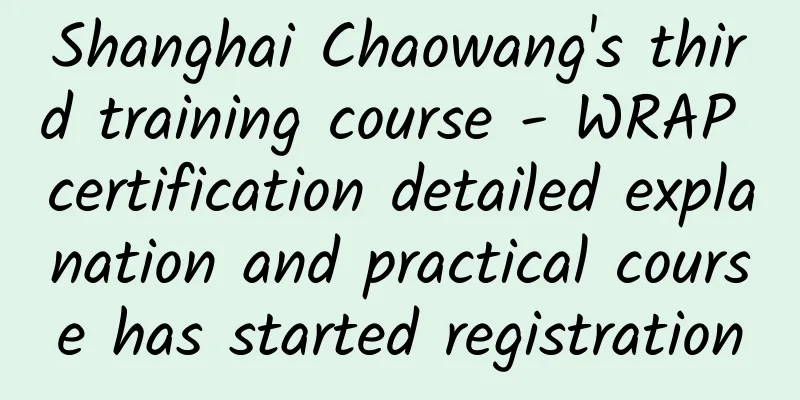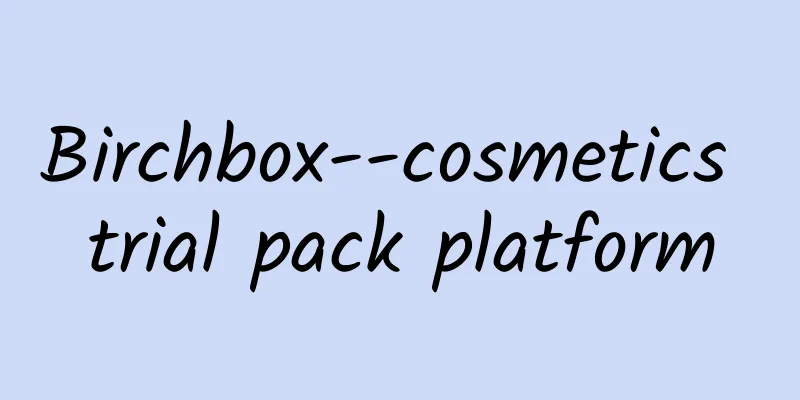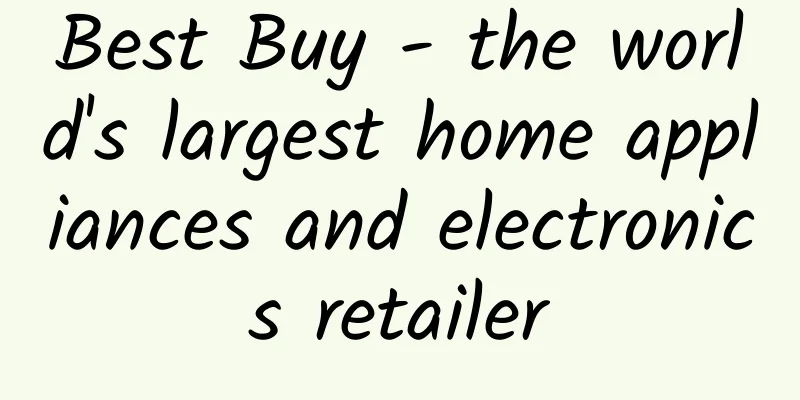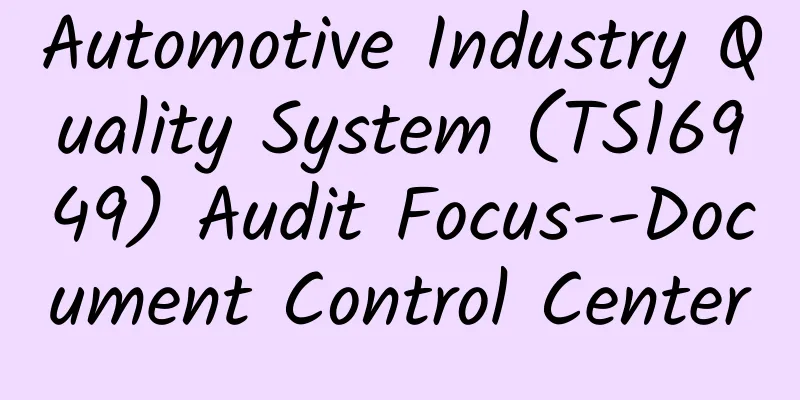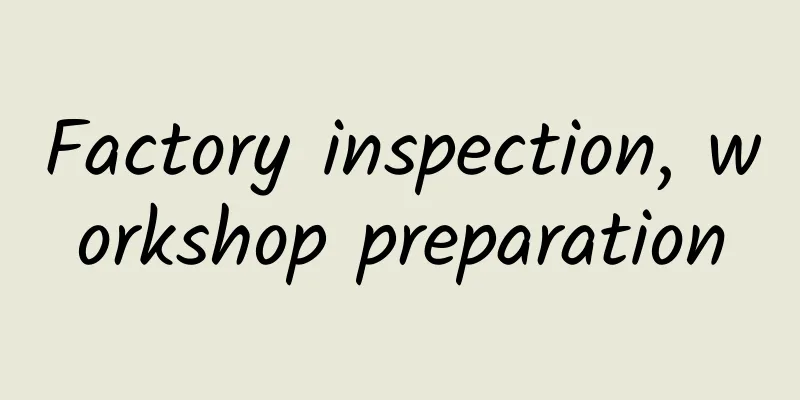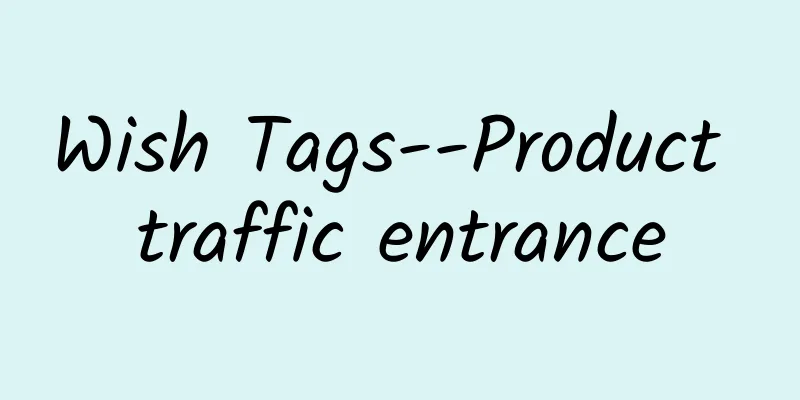Which certification system is suitable for your company? You will never be confused again after reading this!

|
There are too many ISO systems and it’s too confusing. Don’t be confused about which one to apply for? No problem! Today, I will explain to you one by one which companies should apply for which system certification. Don’t waste money and don’t miss the certificates you need! ISO9001 quality management system ISO9001 is a universal standard. This is not to say that the 9001 standard is omnipotent, but because 9001 is a basic standard, the essence of Western quality management science. It is applicable to production enterprises, service industries, intermediary companies, sales companies, etc. Because quality is common to all. Generally speaking, the ISO9001 standard is more suitable for manufacturing enterprises, because the content in the standard is easier to match and the process is clearer, so there is a sense of matching. Sales companies can be divided into two types, pure sales and production-oriented sales companies. If it is a pure sales company, its products are outsourced or purchased, and its products are sales services, not product production. Therefore, the planning process must consider the particularity of the product (sales process), which will make it easier to plan the system. If it is a production-oriented sales company, which includes production, both the production process and the sales process should be planned. Therefore, when a sales company applies for an ISO9001 certificate, it should consider its own products to distinguish itself from a production-oriented company. In general, regardless of the size of the enterprise, regardless of the industry, all enterprises are currently suitable for ISO9001 certification. Its scope of application is very wide and suitable for any industry. It is also the foundation and basis for the development and growth of all enterprises. For different industries, ISO9001 has derived different detailed standards, such as the quality system standards of the automotive industry and the medical industry. ISO14001 Environmental Management System ISO14001 environmental management system certification is applicable to any organization, including enterprises, institutions and relevant government units. After passing the certification, it can be proved that the organization has reached international standards in environmental management, and can ensure that the control of various pollutants in the company's processes, products and activities meets relevant requirements, thus establishing a good social image for the company. Environmental protection issues are now attracting more and more attention. Since the International Organization for Standardization issued the ISO14001 environmental management system standard and several other related standards, it has received widespread response and attention from countries around the world. More and more companies that focus on environment and energy conservation have voluntarily implemented the ISO14001 environmental management system. Generally speaking, there are several situations in which enterprises implement ISO14001 environmental management system: 1. Pay attention to environmental protection, and hope to fundamentally achieve pollution prevention and continuous improvement through the implementation of the environmental management system. At the same time, it can promote the process of enterprises developing clean products, adopting clean processes, using efficient equipment, and reasonably disposing of waste.
ISO45001 is an international safety and health management system certification standard and a new version of the original occupational health and safety management system (OHSAS18001). Its purpose is to reduce and prevent the loss of life, property, time and damage to the environment caused by accidents through management. ISO 45001 Occupational Health and Safety Management System is a management system standard applicable to any organization's occupational health and safety. Its purpose is to reduce and prevent the loss of life, property, time, and damage to the environment caused by accidents through management. We usually refer to ISO9001, ISO14001 and ISO45001 as three systems (also known as three standards). These three system standards are applicable to all walks of life, and some local governments will provide financial subsidies to enterprises that pass the certification. Any company engaged in construction projects, road and bridge projects, equipment installation and other related projects must have corresponding qualification certificates, including the GB/T50430 construction system. In bidding activities, if you are an enterprise in the engineering construction industry, I believe you are no stranger to GB/T50430 certification, especially having three certificates can also improve the bid winning score and increase the bid winning rate. ISO27001 Information Security Management System 1. Industries that rely on information as their lifeline: 1. Financial industry: banking, insurance, securities, funds, futures, etc. 2. Communications industry: Telecom, Netcom, Mobile, Unicom, etc. 3. Shell companies: foreign trade, import and export, HR, headhunting, accounting firms, etc. 2. Industries with high reliance on information technology: 1. Steel, semiconductors, logistics 2. Electricity and energy 3. Outsourcing (ITO or BPO): IT, software, telecommunications IDC, call center, data entry, data processing, etc. 3. High process technology requirements, what competitors are eager to obtain: 1. Medicine and fine chemicals 2. Research institutions The introduction of an information security management system can coordinate information management in all aspects, making management more effective. Ensuring information security is not something that can be achieved with just a firewall or a company that provides 24-hour information security services. It requires comprehensive and integrated management. ISO20000 Information Technology Service Management System ISO20000 is the first international standard for IT service management system requirements. It adheres to the concept of "customer-oriented and process-centered" and emphasizes continuous improvement of IT services provided by organizations according to the PDCA (Deming Quality) methodology. Its purpose is to provide a model for establishing, implementing, operating, monitoring, reviewing, maintaining and improving IT service management systems (ITSM). ISO 20000 certification is suitable for IT service providers, which can be internal IT departments or external service providers, including (but not limited to) the following categories: 1. IT service outsourcing provider 2. IT system integrators and software developers 3. ISO22000 food safety management system of the enterprise's internal IT service provider or IT operation support department The ISO22000 food safety management system certificate is one of the essential certificates in the catering industry. The ISO22000 system applies to all organizations in the entire food supply chain, including feed processing, primary product processing, food manufacturing, transportation and storage, as well as retailers and catering industries. It can also be used as a standard for organizations to conduct second-party audits of their suppliers, and of course it can also be used for third-party commercial certification. The HACCP system is a preventive food safety control system that assesses hazards that may occur in the food processing process and then takes control measures. This system is mainly aimed at food production companies and focuses on the hygiene and safety of the entire production chain (responsible for the life safety of consumers). Although both ISO22000 and HACCP systems belong to the category of food safety management, they are different in scope of application: ISO22000 system is applicable to all industries, while HACCP system can only be applied to food and related industries. Companies suitable for IATF16949 system certification include: manufacturers of cars, trucks, buses, motorcycles and their parts and accessories. Companies that are not suitable for IATF16949 system certification include: industrial (forklifts), agricultural (small trucks), construction (engineering vehicles), mining, forestry and other vehicle manufacturers. Mixed production companies, where only a small number of products are provided to automobile manufacturers, can also apply for IATF16949 certification. All management of the company should be implemented in accordance with IATF16949, including automotive product technology. If the production site can be distinguished, only the automotive product manufacturing site can be managed in accordance with IATF16949, otherwise the entire factory must be implemented in accordance with IATF16949. Although mold product manufacturers are suppliers of automobile supply chain manufacturers, the products they supply are not used in automobiles, so they cannot apply for IATF16949 certification. Similar to this, there are also transportation suppliers, etc. Product after-sales service certification Any enterprise that operates legally in the People's Republic of China can apply for product after-sales service certification, including enterprises that manufacture tangible goods, enterprises that sell tangible goods, and enterprises that provide intangible goods (services). Commodities are products that enter the consumer field. In addition to tangible products, commodities also include intangible services. Industrial products and civilian consumer goods are both commodities. Tangible goods have external form, internal quality and promotional elements, such as quality, packaging, brand, shape, style, color, culture, etc. Intangible goods include labor and technical services, such as financial services, accounting services, marketing planning, creative design, management consulting, legal consulting, program design, etc. Intangible goods generally occur with tangible goods and also with tangible infrastructure, such as aviation services, hotel services, beauty services, etc. Therefore, any production, trade, and service enterprise with independent legal status can apply for product after-sales service certification. Category 1: Intellectual property advantages, model enterprises - require implementation of standards; Category 2: 1. For enterprises that are preparing to apply for municipal or provincial famous trademarks or well-known trademarks, the implementation of the standards can serve as an effective proof of the intellectual property management norms; 2. Enterprises preparing to apply for high-tech enterprises, technological innovation projects, industry-university-research cooperation projects, and technical standard projects - the implementation of standards can serve as an effective proof of intellectual property management norms; 3. Enterprises preparing to go public - Implementation of standards can avoid intellectual property risks before going public and serve as effective proof of the company's intellectual property standards. Category 3: 1. Medium and large enterprises with complex organizational structures such as group-based and holding-type enterprises - implementing standards can streamline management ideas; 2. Enterprises with high intellectual property risks: Through standardization, intellectual property risk management can be standardized and the risk of infringement can be reduced; 3. For enterprises that already have a certain foundation in intellectual property work and hope to see further standardization - standardization can standardize management processes. Category 4: Enterprises that often need to participate in bidding - after implementing the standard, they can become the priority for procurement by state-owned enterprises and central enterprises; ■ END ■ Disclaimer: Part of this article is compiled based on online information, and the copyright of the article belongs to the original author. Salute to the original author! The purpose of pushing is to accumulate good and benefit others. If there are any problems with the content, copyright, or other issues of the work, please contact us to delete it and apologize! Supernet Introduction Since 1998, Chaowang (a member of Xiesheng Group) has been committed to helping foreign trade processing companies avoid supply chain risks and ensure the sustainability of foreign trade business. It has successfully coached more than 10,000 companies to pass various audits, with customers all over the country; industries involved: textiles, clothing, apparel, home textiles, luggage, footwear, leather goods, toys, gifts, paper products, wood products, food, ceramics and plastic products, molds, stainless steel, hardware, electronics, electrical appliances, circuit boards, printing, etc. Are you still worried about not passing the factory inspection? Don’t worry! Chaowang Consulting has been engaged in factory inspection and certification consulting for many years. We have rich experience and connections, and are familiar with the process and steps of factory inspection and certification. We can help companies solve certification problems at any time, easily deal with them, and pass them smoothly! Contact number: 400-680-0016 021-51029391 ↓↓ For more factory inspection knowledge, click to browse the Chaowang official website www.sa8000cn.cn |
>>: Latest report: Global recycled plastics market valued at $43.5 billion in 2026!
Recommend
What is Dream Pay? What products does Dream Pay have?
What is Dream Pay? Mengxiangfu is a leading payme...
What is EmailCamel? What are the functions of EmailCamel?
EmailCamel is an email marketing platform for thi...
What is the RoHS Directive? What are the basic contents of the RoHS Directive?
What is the RoHS Directive? On January 27, 2003, ...
Frequently asked questions in Sedex factory audit
The factory inspection market has developed rapid...
Importance of HACCP Certification
In the food production process, the early detect...
Attention friends in Chengdu! New foreign trade regulations have been adjusted, please read it now!
Several policy measures of Chengdu to promote hig...
4 reasons why Walmart ES factory inspection will give you a yellow light for the first time
Many companies expect to get a green light when t...
BSCI Supplier Participation Requirements
The role of suppliers in the implementation of BS...
Conversion Rate--What to do if the conversion rate is too low?
What is Conversion Rate? Conversion rate is the r...
What is Jet? What are the characteristics of Jet?
Jet is a retail platform that sells products at t...
Overgrowth--covering the entire traffic of Amazon platform
What is Overgrowth? Overgrowth is a brand and soc...
What are some examples of eBay listing optimization? What are the methods?
eBay seller search ranking rules require sellers ...
What is a clean bill of lading? What is the issuance process of a clean bill of lading?
What is a Clean Bill of Lading? Clean bill of lad...
Is carbon trading the buying and selling of carbon?
What are carbon credits? Carbon credits, also kno...
How much do you know about the harm of substandard clothing quality?
At present, according to the national mandatory te...

